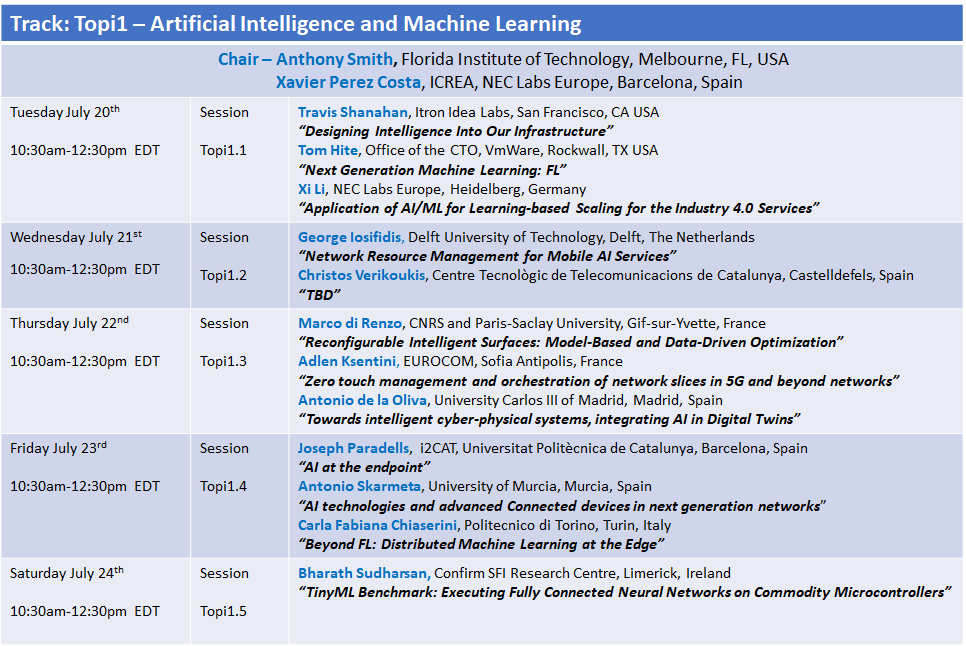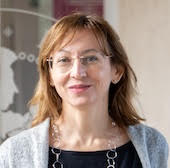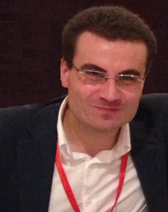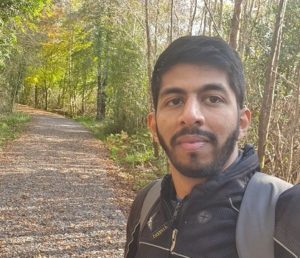
Description
The Internet of Things (IoT) is becoming an emerging topic with prevalent advancements in the development of hardware, software, and communication technologies. The 2021 World Forum Artificial Intelligence and Machine Learning (AI/ML) focuses on how these advancements have impacted society and continue to evolve. The presence of connected devices for managed and platform services across the edge contributes to billions of IoT assets that provide observations and data measurements from the physical, which has facilitated the increase in the volume of collected data. AI/ML can provide insights from the data to further enhance the insights derived to support decision-making and the capabilities that IoT applications provide.
AI/ML approaches are revolutionizing data exploitation in products, processes, and services to make it possible to find meaningful patterns and perform complex analysis. Within this topic session, we discuss AI/ML technologies and applications that further drive the next generation of IoT.
Some particular areas of interest include, but are not limited to:
- Cloud to Edge Computing for IoT
- Edge AI/ML for IoT
- AI/ML and IoT in a 5G and Beyond context
- Distributed Machine Learning for IoT
- Interpretable Machine Learning for IoT
- Deep Learning for IoT applications
- Reinforcement Learning for IoT applications
- Optimized Machine Learning for IoT
- Safe AI/ML for IoT
Track Co-Chairs
Anthony Smith, Florida Institute of Technology (FIT), Melbourne, Florida, USA
 Dr. Anthony Smith, an Associate Professor of Computer Engineering and Sciences at Florida Institute of Technology. He is a Director of The Center for Advanced Data Analytics and Systems, which focuses on developing intelligent systems for information analysis and exploitation. He has extensive industry and government experience in system/software engineering and research. His work has recently focused on the intersection of complex systems for cyber-physical edge analytics and machine learning. Dr. Smith’s professional affiliations include The National Academy of Inventors, SPIE, and IEEE.
Dr. Anthony Smith, an Associate Professor of Computer Engineering and Sciences at Florida Institute of Technology. He is a Director of The Center for Advanced Data Analytics and Systems, which focuses on developing intelligent systems for information analysis and exploitation. He has extensive industry and government experience in system/software engineering and research. His work has recently focused on the intersection of complex systems for cyber-physical edge analytics and machine learning. Dr. Smith’s professional affiliations include The National Academy of Inventors, SPIE, and IEEE.
Xavier Costa-Pérez, ICREA, i2cat, NEC Labs Europe, Barcelona, Spain
 Xavier Costa-Pérez is ICREA Research Professor, Scientific Director at the i2cat Research Center, and Head of 5G Networks R&D at NEC Laboratories Europe. His research focuses on the digital transformation of a society driven by the interplay of mobile networks and AI. His team generates research results that are regularly published at top scientific venues, produces innovations that have received several awards for successful technology transfers, participates in major European Commission R&D collaborative projects, and contributes to standardization bodies such as 3GPP, ETSI NFV, ETSI MEC, and IETF. Xavier has experience raising funding both internally inside a company as well as externally in competitive public R&D programs. He has held multiple leadership positions in industry and research organizations, such as Deputy General Manager, Chief Researcher, Technology Board member, and Scientif Advisory Board Member. As a standards delegate, he contributed to multiple standardization bodies (e.g., IEEE 802.11, 802.16, WiFi Alliance, 3GPP, …) and was recognized in several standards as a top contributor. He has served on the Organizing Committees of several conferences (including IEEE Greencom, WCNC, and INFOCOM), published papers of high impact, and holds tenths of granted patents. Currently, he is serving as Associate Editor at IEEE Transactions on Mobile Computing (TMC), IEEE Transactions on Communications (TCOM), and Elsevier Computer Communications journals (COMCOM). Xavier received both his M.Sc. and Ph.D. degrees in Telecommunications from the Polytechnic University of Catalonia (UPC) in Barcelona and was the recipient of a national award for his Ph.D. thesis.
Xavier Costa-Pérez is ICREA Research Professor, Scientific Director at the i2cat Research Center, and Head of 5G Networks R&D at NEC Laboratories Europe. His research focuses on the digital transformation of a society driven by the interplay of mobile networks and AI. His team generates research results that are regularly published at top scientific venues, produces innovations that have received several awards for successful technology transfers, participates in major European Commission R&D collaborative projects, and contributes to standardization bodies such as 3GPP, ETSI NFV, ETSI MEC, and IETF. Xavier has experience raising funding both internally inside a company as well as externally in competitive public R&D programs. He has held multiple leadership positions in industry and research organizations, such as Deputy General Manager, Chief Researcher, Technology Board member, and Scientif Advisory Board Member. As a standards delegate, he contributed to multiple standardization bodies (e.g., IEEE 802.11, 802.16, WiFi Alliance, 3GPP, …) and was recognized in several standards as a top contributor. He has served on the Organizing Committees of several conferences (including IEEE Greencom, WCNC, and INFOCOM), published papers of high impact, and holds tenths of granted patents. Currently, he is serving as Associate Editor at IEEE Transactions on Mobile Computing (TMC), IEEE Transactions on Communications (TCOM), and Elsevier Computer Communications journals (COMCOM). Xavier received both his M.Sc. and Ph.D. degrees in Telecommunications from the Polytechnic University of Catalonia (UPC) in Barcelona and was the recipient of a national award for his Ph.D. thesis.
Speakers
Travis Shanahan, Itron Idea Labs, Sr Principal Research Architect, San Francisco, CA USA
 Travis Shanahan serves as the lead research architect for Itron Idea Labs, an innovation organization within Itron. He has been working on developing cloud infrastructure and cloud applications before the word was coined for shared large-scale hosted software services. In particular, taking lead architecture roles at Oracle, a few startups, as well as at Silver Spring Networks prior to joining Itron Idea Labs. While his background has been largely on the cloud side of IoT, he has helped extend the cloud out to the field network to develop a number of edge compute with ML and AI capabilities in network deployments over the past few years with smart city and smart grid network infrastructures. Travis also serves a number of advisory roles including the chief architect of the Pediatric Cloud Project. A collaboration effort with Stanford to transform the way AI in medicine can help children’s medicine globally in the edge.
Travis Shanahan serves as the lead research architect for Itron Idea Labs, an innovation organization within Itron. He has been working on developing cloud infrastructure and cloud applications before the word was coined for shared large-scale hosted software services. In particular, taking lead architecture roles at Oracle, a few startups, as well as at Silver Spring Networks prior to joining Itron Idea Labs. While his background has been largely on the cloud side of IoT, he has helped extend the cloud out to the field network to develop a number of edge compute with ML and AI capabilities in network deployments over the past few years with smart city and smart grid network infrastructures. Travis also serves a number of advisory roles including the chief architect of the Pediatric Cloud Project. A collaboration effort with Stanford to transform the way AI in medicine can help children’s medicine globally in the edge.
Title: Designing Intelligence Into Our Infrastructure
Abstract: We have seen the limitations of our infrastructure and the ability to meet the needs of tomorrow. Electrification initiatives will drive how resourceful we can be in distributing clean energy. We still struggle to distribute clean water without significant loss. Deep learning has recently had great success in image processing, speech recognition and other applications. How do we go from learning with this kind of data to learning with complex data in industries that involve large network infrastructures and large numbers of interacting devices in a complex system?
This talk will discuss how techniques like active inference, agent-based modeling, and learning on a graph can help us build deep learning to drive efficiencies and intelligence into the infrastructure of tomorrow.
Antonio de la Oliva, University Carlos III of Madrid, Madrid, Spain
 Antonio de la Oliva is an Associate Professor at University Carlos III of Madrid, where he has been working on different areas of wireless networking for the last 15 years. Antonio de la Oliva has served as Vice-chair of the IEEE 802.21b task group and Technical Editor of IEEE 802.21d, contributing significantly to the development of the IEEE 802 standards for Media Independent Handover Services and he is currently participating in IEEE 802.11 activities. He has served as TPC chair and organiser of multiple conferences and workshops, with highlighting Conference Organizer of the 2013 IEEE Online Conference on Green Communications (IEEE OnlineGreenComm), WCNC’18 Workshop co-chair and TPC co-chair of IEEE NFV/SND 2020 and 2021. He has also edited several special issues, such as of an Special Issue for IEEE Communication Magazine and he is actually serving as Area Editor of Elsevier Computer Communications. His research interests cover a wide area of topics including wireless communications, AI, digital twining, fog, Edge computing and 5G. He is currently leading the H2020 5G-PPP EU/TW joint action 5G-DIVE.
Antonio de la Oliva is an Associate Professor at University Carlos III of Madrid, where he has been working on different areas of wireless networking for the last 15 years. Antonio de la Oliva has served as Vice-chair of the IEEE 802.21b task group and Technical Editor of IEEE 802.21d, contributing significantly to the development of the IEEE 802 standards for Media Independent Handover Services and he is currently participating in IEEE 802.11 activities. He has served as TPC chair and organiser of multiple conferences and workshops, with highlighting Conference Organizer of the 2013 IEEE Online Conference on Green Communications (IEEE OnlineGreenComm), WCNC’18 Workshop co-chair and TPC co-chair of IEEE NFV/SND 2020 and 2021. He has also edited several special issues, such as of an Special Issue for IEEE Communication Magazine and he is actually serving as Area Editor of Elsevier Computer Communications. His research interests cover a wide area of topics including wireless communications, AI, digital twining, fog, Edge computing and 5G. He is currently leading the H2020 5G-PPP EU/TW joint action 5G-DIVE.
Title: Towards intelligent cyber-physical systems, integrating AI in Digital Twins
Abstract: Industry 4.0 aims at supporting smarter and autonomous processes while improving agility, cost efficiency and user experience. To push forward the limits of IoT and its use in I4.0 scenarios, data analysis and reactions based on the result, is required. Artificial Intelligence (AI) appears as a strong candidate to handle all generated data, and to help in the automation processes. This talk dives into the mission of AI as a key enabling technology of future Digital Twin. The role of AI in each technology domain is identified by analyzing a set of AI agents at the application and infrastructure level. Finally, some results on different AIs we are working on for DT will be presented.
Carla Fabiana Chiasserini, Politecnico di Torino, Italy
 Carla Fabiana Chiasserini is Full Professor at Politecnico di Torino, Italy, and a Research Associate with the Italian National Research Council (CNR). She was a Visiting Researcher at UC San Diego from 1998 to 2003, and a Visiting Professor at Monash University in 2012 and 2016. She is a Fellow of the IEEE. Her research interests include 5G-and-beyond Networks, NFV, Mobile Edge Computing, Connected Vehicles, and Distributed Machine Learning at the network Edge. She has published over 320 journal articles and referred conference papers, and has received several awards for her scientific work. Currently, she serves as Editor-in-Chief of the Computer Communications journal and as an Associate Editor of the IEEE/ACM Transactions on Networking. Carla is also a member of the Steering Committee of the IEEE Transactions on Network Science and Engineering and of the ACM MobiHoc conference. She has served for several years on the Editorial Board of journals such as the IEEE Transactions on Wireless Networks and the IEEE Transactions on Mobile Computing, and she has been Co-Guest Editor of a number of journals special issues. Carla is/has been involved in may national and International research projects, either as a coordinator or a PI, including the EU H2020 5G-Crosshaul, 5G-TRANSFORMER, I-REACT, 5GROWTH, RAINBOW, and Hexa-X projects. For more information, please refer to: http://www.telematica.polito.it/public/faculty/carla-fabiana-chiasserini/.
Carla Fabiana Chiasserini is Full Professor at Politecnico di Torino, Italy, and a Research Associate with the Italian National Research Council (CNR). She was a Visiting Researcher at UC San Diego from 1998 to 2003, and a Visiting Professor at Monash University in 2012 and 2016. She is a Fellow of the IEEE. Her research interests include 5G-and-beyond Networks, NFV, Mobile Edge Computing, Connected Vehicles, and Distributed Machine Learning at the network Edge. She has published over 320 journal articles and referred conference papers, and has received several awards for her scientific work. Currently, she serves as Editor-in-Chief of the Computer Communications journal and as an Associate Editor of the IEEE/ACM Transactions on Networking. Carla is also a member of the Steering Committee of the IEEE Transactions on Network Science and Engineering and of the ACM MobiHoc conference. She has served for several years on the Editorial Board of journals such as the IEEE Transactions on Wireless Networks and the IEEE Transactions on Mobile Computing, and she has been Co-Guest Editor of a number of journals special issues. Carla is/has been involved in may national and International research projects, either as a coordinator or a PI, including the EU H2020 5G-Crosshaul, 5G-TRANSFORMER, I-REACT, 5GROWTH, RAINBOW, and Hexa-X projects. For more information, please refer to: http://www.telematica.polito.it/public/faculty/carla-fabiana-chiasserini/.
Title: Beyond FL: Distributed Machine Learning at the Edge
Abstract: One of the fundamental components that is missing in 5G, and that is advocated to be a key element of 6G, is the Intelligent Edge — a new paradigm aiming at optimally combining ML-based applications with the edge of the network infrastructure and with the mobile users under its coverage. This talk looks at the edge and fog continuum, and how new ML architectures can be used to better leverage the computing, and energy, resources offered by edge and fog. The talk also highlights the challenges that need to be solved to make the Intelligent Edge reality.
Antonio Skarmeta, University of Murcia, Spain
 Dr Antonio Skarmeta received the M.S. degree in Computer Science from the University of Granada and B.S. (Hons.) and the Ph.D. degrees in Computer Science from the University of Murcia Spain. Since 2009 he is Full Professor at the same department and University. Antonio F. Skarmeta has worked on different research projects in the national and international area in the networking, security and IoT and 5G area. He coordinates the H2020 project IoTCrawler focusing on IoT advanced discovery on IPv6 networks and OLYMPUS on privacy preserving IdM. His main interested is in the integration of 5G, security services, identity, IoT and Smart Cities, being scientific manager of the Smart City project of Murcia City Hall (MiMurcia).
Dr Antonio Skarmeta received the M.S. degree in Computer Science from the University of Granada and B.S. (Hons.) and the Ph.D. degrees in Computer Science from the University of Murcia Spain. Since 2009 he is Full Professor at the same department and University. Antonio F. Skarmeta has worked on different research projects in the national and international area in the networking, security and IoT and 5G area. He coordinates the H2020 project IoTCrawler focusing on IoT advanced discovery on IPv6 networks and OLYMPUS on privacy preserving IdM. His main interested is in the integration of 5G, security services, identity, IoT and Smart Cities, being scientific manager of the Smart City project of Murcia City Hall (MiMurcia).
Title: AI technologies and advanced Connected devices in next generation networks
Abstract: IoT devices and the emergence of 5G in our daily lives are bringing new data-driven and increasingly autonomous scenarios. There is new possibilities of highly distributed processing capacities from IoT-Edge-Cloud in a continuum: New services requires efficient and effective management of computing and network resources what means to deal with huge amounts of data and at different levels of the future NG infrastructure. In this context there is a need for configuration, architecture and coordination of processing nodes at different levels: end-device – edge – cloud … and beyond, there is a need for intelligent methods to offload processing operations to the proper levels of the computing network to meet e.g. delay and processing constraints, security. In order to cope with this an intelligent mechanism and AI and learning procedures are offering new options and support heterogeneous processing infrastructures.
Marco Di Renzo, CNRS & Paris-Saclay University, France
 Marco Di Renzo (Fellow, IEEE) received the Laurea (cum laude) and Ph.D. degrees in electrical engineering from the University of L’Aquila, Italy, in 2003 and 2007, respectively, and the Habilitation à Diriger des Recherches (D.Sc.) degree from Paris-Sud University (now Paris-Saclay University), France, in 2013. Since 2010, he has been with the French National Center for Scientific Research (CNRS), where he is currently a CNRS Research Director (CNRS Professor) with the Laboratory of Signals and Systems (L2S), Paris-Saclay 1587University—CNRS and CentraleSupelec, Paris, France. In Paris-Saclay University, he also serves as the Coordinator for the Communications and Networks Research Area, Laboratory of Excellence DigiCosme, and as a member for the Admission and Evaluation Committee of the Ph.D. School on Information and Communication Technologies. He is a Fellow of the U.K. Institution of Engineering and Technology (IET) and an Ordinary Member of the European Academy of Sciences and Arts (EASA). He has received several research distinctions, which include the SEE-IEEE Alain Glavieux Award, the IEEE Jack Neubauer Memorial Best Systems Paper Award, the Royal Academy of Engineering Distinguished Visiting Fellowship, the Nokia Foundation Visiting Professorship, and the 2021 EURASIP Journal on Wireless Communications and Networking Best Paper Award. He is the Editor-in-Chief of IEEE COMMUNICATIONS LETTERS and a Distinguished Speaker of the IEEE Vehicular Technology Society. From 2017 to 2020, he was a Distinguished Lecturer of the IEEE Vehicular Technology Society and the IEEE Communications Society.
Marco Di Renzo (Fellow, IEEE) received the Laurea (cum laude) and Ph.D. degrees in electrical engineering from the University of L’Aquila, Italy, in 2003 and 2007, respectively, and the Habilitation à Diriger des Recherches (D.Sc.) degree from Paris-Sud University (now Paris-Saclay University), France, in 2013. Since 2010, he has been with the French National Center for Scientific Research (CNRS), where he is currently a CNRS Research Director (CNRS Professor) with the Laboratory of Signals and Systems (L2S), Paris-Saclay 1587University—CNRS and CentraleSupelec, Paris, France. In Paris-Saclay University, he also serves as the Coordinator for the Communications and Networks Research Area, Laboratory of Excellence DigiCosme, and as a member for the Admission and Evaluation Committee of the Ph.D. School on Information and Communication Technologies. He is a Fellow of the U.K. Institution of Engineering and Technology (IET) and an Ordinary Member of the European Academy of Sciences and Arts (EASA). He has received several research distinctions, which include the SEE-IEEE Alain Glavieux Award, the IEEE Jack Neubauer Memorial Best Systems Paper Award, the Royal Academy of Engineering Distinguished Visiting Fellowship, the Nokia Foundation Visiting Professorship, and the 2021 EURASIP Journal on Wireless Communications and Networking Best Paper Award. He is the Editor-in-Chief of IEEE COMMUNICATIONS LETTERS and a Distinguished Speaker of the IEEE Vehicular Technology Society. From 2017 to 2020, he was a Distinguished Lecturer of the IEEE Vehicular Technology Society and the IEEE Communications Society.
Title: Reconfigurable Intelligent Surfaces: Model-Based and Data-Driven Optimization
Abstract: A Reconfigurable Intelligent Surface (RIS) is a planar structure that is engineered to have properties that enable the dynamic control of the electromagnetic waves. In wireless communications and networks, RISs are an emerging technology for realizing programmable and reconfigurable wireless propagation environments through nearly passive and tunable signal transformations. RIS-assisted programmable wireless environments are a multidisciplinary research endeavor but are not well-understood. In this talk, we will discuss how electromagnetic-consistent and data-driven methods can be leveraged for optimizing RIS-assisted wireless communication networks.
George Iosifidis, Delft University of Technology, Netherlands
 George Iosifidis received the diploma degree in telecommunications from the Greek Air Force Academy, Athens, in 2000, and the Ph.D. degree from the Department of Electrical and Computer Engineering, University of Thessaly, in 2012. His research interests lie in the broad area of network optimization and network economics, with a recent focus on edge computing, caching systems and sharing economy platforms. He is currently an Assistant Professor with the Delft University of Technology and an Editor for IEEE Transactions on Communications, IEEE/ACM Transactions on Networking and IEEE Transactions on Network Science and Engineering.
George Iosifidis received the diploma degree in telecommunications from the Greek Air Force Academy, Athens, in 2000, and the Ph.D. degree from the Department of Electrical and Computer Engineering, University of Thessaly, in 2012. His research interests lie in the broad area of network optimization and network economics, with a recent focus on edge computing, caching systems and sharing economy platforms. He is currently an Assistant Professor with the Delft University of Technology and an Editor for IEEE Transactions on Communications, IEEE/ACM Transactions on Networking and IEEE Transactions on Network Science and Engineering.
Title: Network Resource Management for Mobile AI Services
Bharath Sudharsan, Confirm SFI Research Centre, Limerick, Ireland
 Bharath Sudharsan is working towards his Ph.D. at the CONFIRM SFI Research Centre for Smart Manufacturing, NUI Galway. He is also a Research Intern at the Artificial Intelligence Institute, University of South Carolina, Columbia, USA. He has recently joined ARM, Galway as a ML Infrastructure Intern. His core research focuses on; (i) Designing multi-component sequences for deep optimization of ML models; (ii) Designing approaches for efficient execution of ML models on AIoT boards, small CPUs, and MCUs based IoT devices; (iii) Designing algorithms to create self-learning devices that can locally re-train themselves using the unseen real-world data. From 2020 to present, he has published papers, provided demos in venues such as ECML, ICCPS, IoTDI, WF-IoT, IoT, PerCom, IEEE Internet Computing, etc. He obtained his Masters from NUI Galway in Electronics and Computer Engineering. Prior to research, he was an Embedded System Engineer at Four Corners Technologies, where they developed IoT smart solutions for retails, workspace, kiosks, and outdoor billboards. He was the hardware guy at 4CT, where his role in these projects was to design-build-program the wireless embedded system (hardware) of the devices, then connect its data stream to their cloud services.
Bharath Sudharsan is working towards his Ph.D. at the CONFIRM SFI Research Centre for Smart Manufacturing, NUI Galway. He is also a Research Intern at the Artificial Intelligence Institute, University of South Carolina, Columbia, USA. He has recently joined ARM, Galway as a ML Infrastructure Intern. His core research focuses on; (i) Designing multi-component sequences for deep optimization of ML models; (ii) Designing approaches for efficient execution of ML models on AIoT boards, small CPUs, and MCUs based IoT devices; (iii) Designing algorithms to create self-learning devices that can locally re-train themselves using the unseen real-world data. From 2020 to present, he has published papers, provided demos in venues such as ECML, ICCPS, IoTDI, WF-IoT, IoT, PerCom, IEEE Internet Computing, etc. He obtained his Masters from NUI Galway in Electronics and Computer Engineering. Prior to research, he was an Embedded System Engineer at Four Corners Technologies, where they developed IoT smart solutions for retails, workspace, kiosks, and outdoor billboards. He was the hardware guy at 4CT, where his role in these projects was to design-build-program the wireless embedded system (hardware) of the devices, then connect its data stream to their cloud services.
Bharath’s homepage: https://bharathsudharsan.github.io/profile/
Title: TinyML Benchmark: Executing Fully Connected Neural Networks on Commodity Microcontrollers
Abstract: Recent advancements in the field of ultra-low-power machine learning (TinyML) promises to unlock an entirely new class of edge applications. However, continued progress is restrained by the lack of benchmarking Machine Learning (ML) models on TinyML hardware, which is fundamental to this field reaching maturity. In this paper, we designed 3 types of fully connected Neural Networks (NNs), trained each NN using 10 datasets (produces 30 NNs), and present the benchmark by reporting the onboard model performance on 7 popular MCU-boards (similar boards are used to design TinyML hardware). We open-sourced and made the complete benchmark results freely available online to enable the TinyML community researchers and developers to systematically compare, evaluate, and improve various aspects during the design phase of ML-powered IoT hardware.
Xi Li, NEC Xi Li, NEC Labs Europe, Heidelberg, Germany
 Xi Li is a Senior Researcher on 5G Networks R&D at NEC Laboratories Europe GmbH, focused on the research of 5G/6G networks. She received her M.Sc. in 2002 from the Technical University of Dresden and her Ph.D. in 2009 from University of Bremen, Germany. She is the Technical Manager of the EU H2020 5GPPP project 5Growth and was the technical work package leader of the EU H2020 5GPPP projects 5G-Crosshaul and 5G-TRANSFORMER. Previously, she was a senior researcher and lecturer at the University of Bremen and a solution designer at Telefonica, Germany. She has published about 80 journal and conference publications, and given many invited talks in various international conferences and industrial events. She is the inventor of 5 granted patents, and active in standard contributing to IETF and has published two RFCs. Her research interests include architecture design of next generation mobile networks, open and virtualized RAN, service orchestration based on SDN/NFV, and machine learning for network optimization.
Xi Li is a Senior Researcher on 5G Networks R&D at NEC Laboratories Europe GmbH, focused on the research of 5G/6G networks. She received her M.Sc. in 2002 from the Technical University of Dresden and her Ph.D. in 2009 from University of Bremen, Germany. She is the Technical Manager of the EU H2020 5GPPP project 5Growth and was the technical work package leader of the EU H2020 5GPPP projects 5G-Crosshaul and 5G-TRANSFORMER. Previously, she was a senior researcher and lecturer at the University of Bremen and a solution designer at Telefonica, Germany. She has published about 80 journal and conference publications, and given many invited talks in various international conferences and industrial events. She is the inventor of 5 granted patents, and active in standard contributing to IETF and has published two RFCs. Her research interests include architecture design of next generation mobile networks, open and virtualized RAN, service orchestration based on SDN/NFV, and machine learning for network optimization.
Title: Application of AI/ML for Learning-based Scaling for the Industry 4.0 Services
Abstract: In the context of IoT, the dynamics of available infrastructure resources and varying service demands from IoT devices, robots and their associated applications require smart resource allocation and scaling over the service run-time in order to provide an automated assurance of service quality. Towards this aim, Artificial Intelligence (AI) and Machine Learning (ML) solutions are adopted into built-in architectural features for enabling autonomous networks driven by AI/ML. In this talk, we will present the 5Growth architecture solution on a novel design of the AI/ML platform and its integration into the service management MANO platform for a closed-loop service automation system. Some use case examples will be shown on applying AI/ML techniques to learn based on the measured networking data and decide on the automated resource allocation and scaling of the IoT applications with adaption to the dynamic changes of the service demands. Finally, results from a prototype developed to demonstrate the 5Growth AI/ML platform closed-loop automation system will be presented for the automated service scaling operation of an Industry 4.0 robotic digital twin service.
Adlen Ksentini, Communication Systems Department of EURECOM
Adlen Ksentini is a COMSOC distinguished lecturer. He obtained his Ph.D. degree in computer science from the University of Cergy-Pontoise in 2005, with a dissertation on QoS provisioning in IEEE 802.11-based networks. From 2006 to 2016, he worked at the University of Rennes 1 as an assistant professor. During this period, he was a member of the Dionysos Team with INRIA, Rennes. Since March 2016, he has been working as a professor in the Communication Systems Department of EURECOM. He has been involved in several national and European projects on QoS and QoE support in future wireless, network virtualization, cloud networking, mobile networks, and more recently on Network Slicing and 5G in the context of H2020 projects 5G!Pagoda, 5GTransformer, 5G!Drones and MonB5G. He has co-authored over 120 technical journal and international conference papers. He received the best paper award from IEEE IWCMC 2016, IEEE ICC 2012, and ACM MSWiM 2005. He has been awarded the 2017 IEEE Comsoc Fred W. Ellersick (best IEEE communications Magazine’s paper). Adlen Ksentini has given several tutorials in IEEE international conferences, IEEE Globecom 2015, IEEEE CCNC 2017, IEEE ICC 2017, IEEE/IFIP IM 2017 and IEEE Globecom 2021. He gave Keynotes in IEEE GIIS 2020, IEEE ICC Workshop 2021, and IEEE Globecom Workshops 2021.
Tom Hite, Office of the CTO, VmWare, Rockwall, TX USA
 Tom Hite serves as Sr. Director, Office of the CTO at VMware. Prior to acquisition by VMware, Tom served as VP/CTO at MomentumSI, Inc.; was co-Founder and CTO of Metallect Corp.; Chief Technology Officer at AMX Corporation and Chief Executive Officer of Phast, AMX’s wholly owned subsidiary. Mr. Hite holds BSME, MSME and Juris Doctor degrees and holds multiple patents in networking, artificial intelligence and semantic analysis.
Tom Hite serves as Sr. Director, Office of the CTO at VMware. Prior to acquisition by VMware, Tom served as VP/CTO at MomentumSI, Inc.; was co-Founder and CTO of Metallect Corp.; Chief Technology Officer at AMX Corporation and Chief Executive Officer of Phast, AMX’s wholly owned subsidiary. Mr. Hite holds BSME, MSME and Juris Doctor degrees and holds multiple patents in networking, artificial intelligence and semantic analysis.Josep Paradells, Universitat Politecnica of Catalunya
 Josep Paradells Aspas is a professor at the Universitat Politecnica of Catalunya and a Director of i2cat, a research center dealing with Internet. He is doing research in IoT, mainly in the area of indirect sensing, Internet for low performance devices and radio wakeup for ultra low power consumption.
Josep Paradells Aspas is a professor at the Universitat Politecnica of Catalunya and a Director of i2cat, a research center dealing with Internet. He is doing research in IoT, mainly in the area of indirect sensing, Internet for low performance devices and radio wakeup for ultra low power consumption.


